The Antique Catalog Scrolls (《古玩图卷》) are a series of inventory-style paintings commissioned by the Qing imperial court. Created during the Yongzheng reign (1723–1735), these scrolls meticulously document the emperor’s curated collection of bronze ware, ceramics, jade, gemstones, lacquerware, and other antiquities. Only two surviving scrolls are known today: Volume 6 (卷六), held by the Percival David Foundation at the British Museum, and Volume 8 (卷八), housed in the Victoria and Albert Museum. Together, they depict nearly 500 artifacts
- Artistic Techniques:
Likely painted by Western-trained court artists or those versed in European styles, the scrolls employ shading and perspective to achieve striking three-dimensionality. Each artifact is rendered in vivid colors, reflecting their real-life counterparts in the imperial collection - Content and Composition:
- Volume 6 (20 meters long, 62.5 cm high) includes 223 objects: 20 bronzes, 106 ceramics, 83 jade pieces, 1 coral item, 2 wood carvings, and 11 miscellaneous artifacts. Most are displayed on custom mounts of wood, silk, or stained ivory
- Volume 8 (26.5 meters long, 64 cm high) features 270 artifacts, spanning Neolithic jades, Shang-Zhou bronzes, and ceramics from Song to Qing dynasties. Unlike Volume 6, its arrangement lacks thematic or chronological order, suggesting it may have served as an inventory for palace displays
- Volume 6 (20 meters long, 62.5 cm high) includes 223 objects: 20 bronzes, 106 ceramics, 83 jade pieces, 1 coral item, 2 wood carvings, and 11 miscellaneous artifacts. Most are displayed on custom mounts of wood, silk, or stained ivory
- Symbolic Elements:
Volume 6 concludes with a throne and five-panel screen adorned with miniature antique paintings, symbolizing imperial authority and the fusion of art and governance
Historical and Cultural Significance
- Purpose: These scrolls likely functioned as archival records of palace treasures, possibly linked to specific halls or rituals. Their lack of inscriptions or seals adds mystery to their creation context
- Legacy: Some depicted items, such as Ming Xuande-era porcelain (e.g., blue-and-white vases), match surviving artifacts in institutions like Taipei’s National Palace Museum
The Qianlong Emperor later expanded this tradition with his own illustrated catalogs
- Material Splendor: Mounted on premium silk brocade with eight-treasure motifs and ivory fasteners, the scrolls exemplify Qing luxury craftsmanship
Current Status
Both scrolls are accessible digitally via platforms like Shuge.org
. Their blend of Chinese antiquarianism and European techniques offers a unique window into 18th-century imperial aesthetics and cross-cultural exchange.
For detailed viewing or academic research, visit the British Museum (Volume 6) or Victoria and Albert Museum (Volume 8).

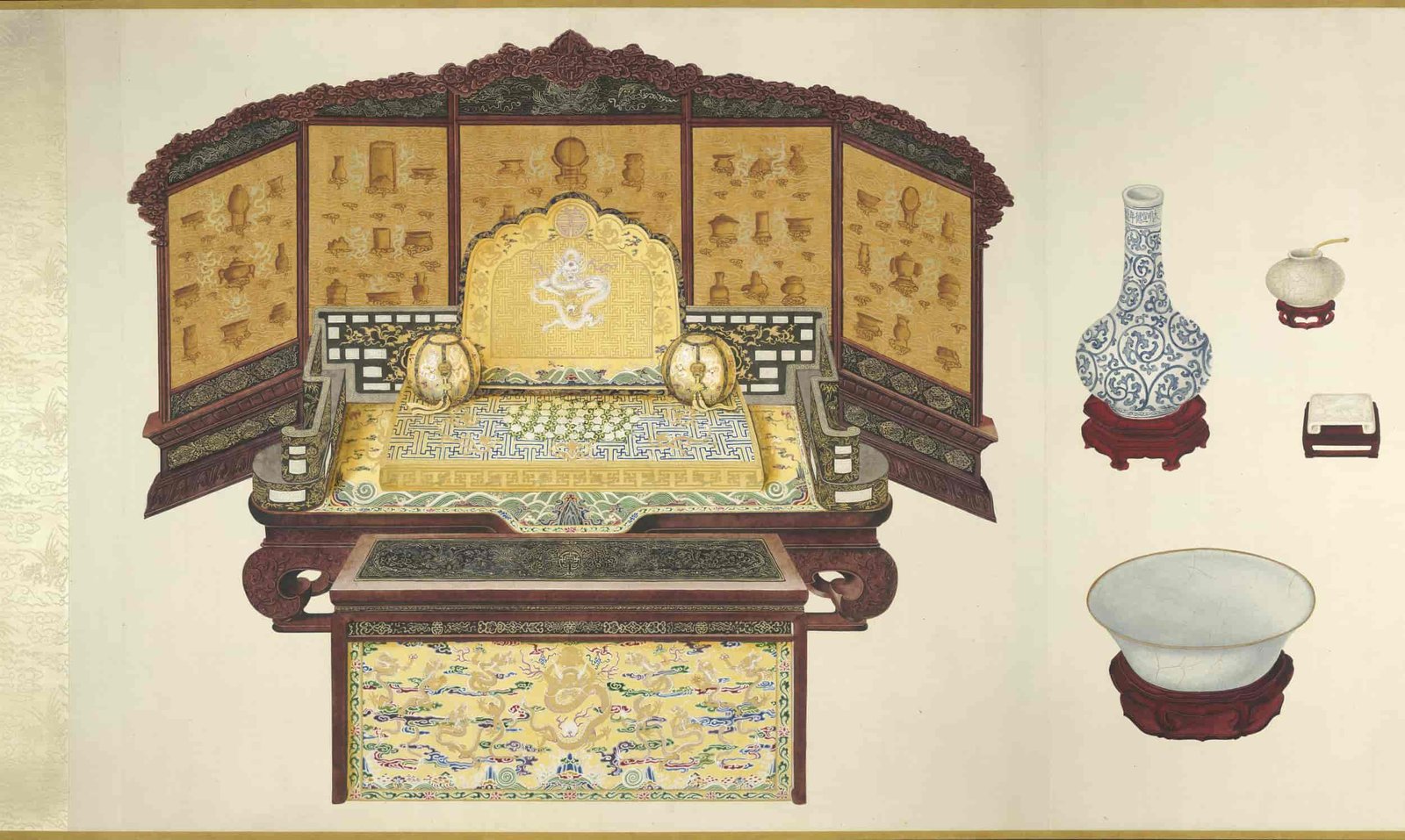
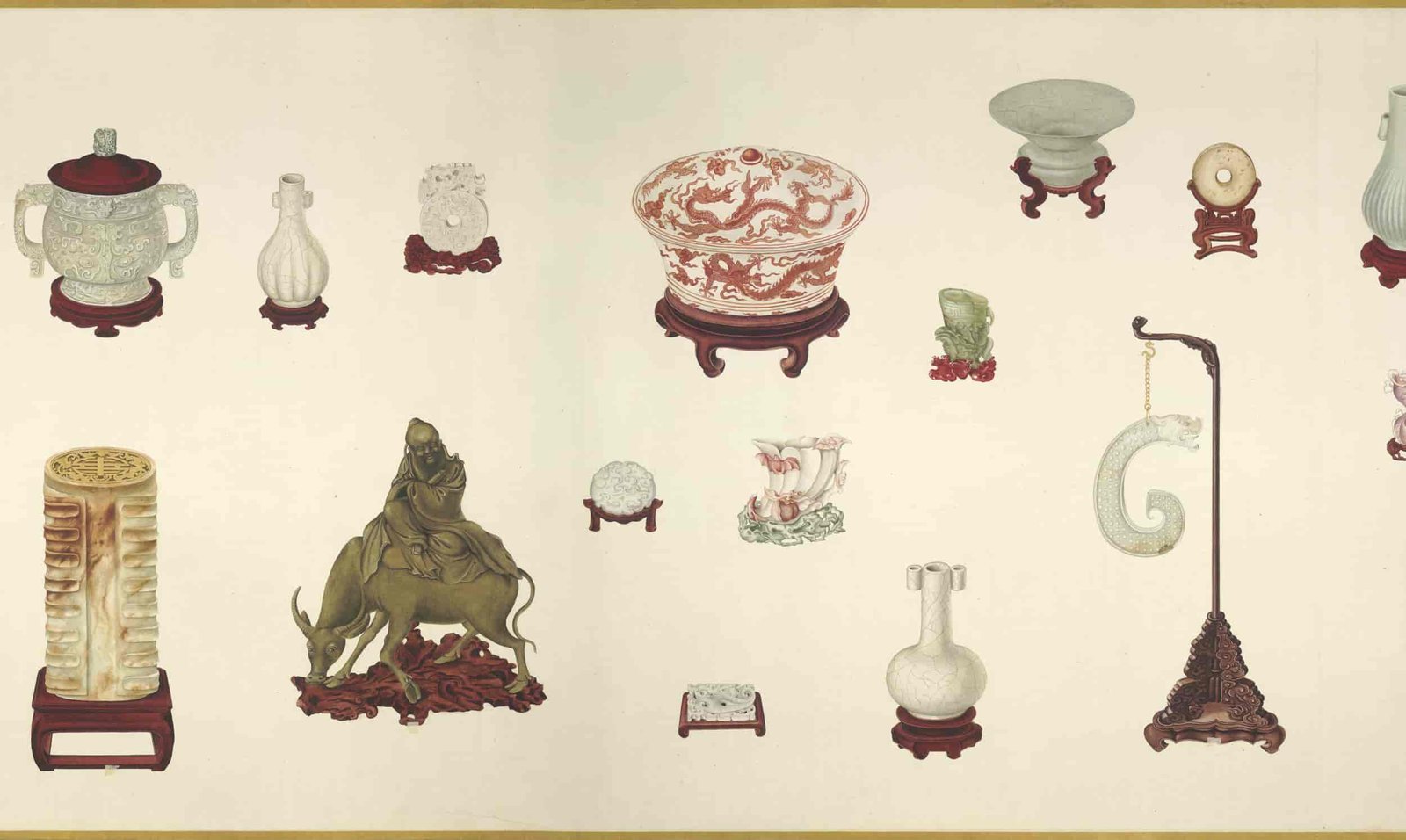
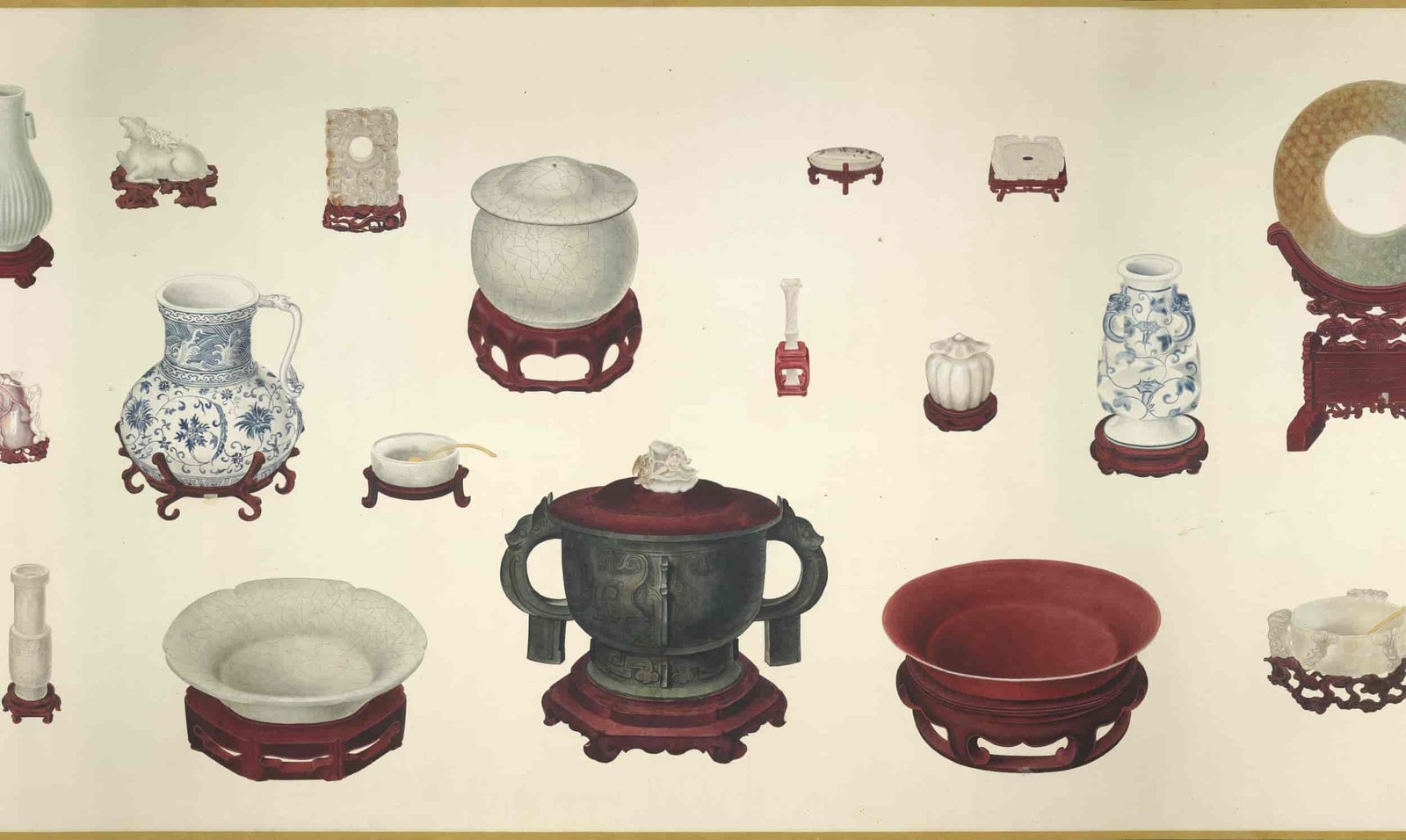
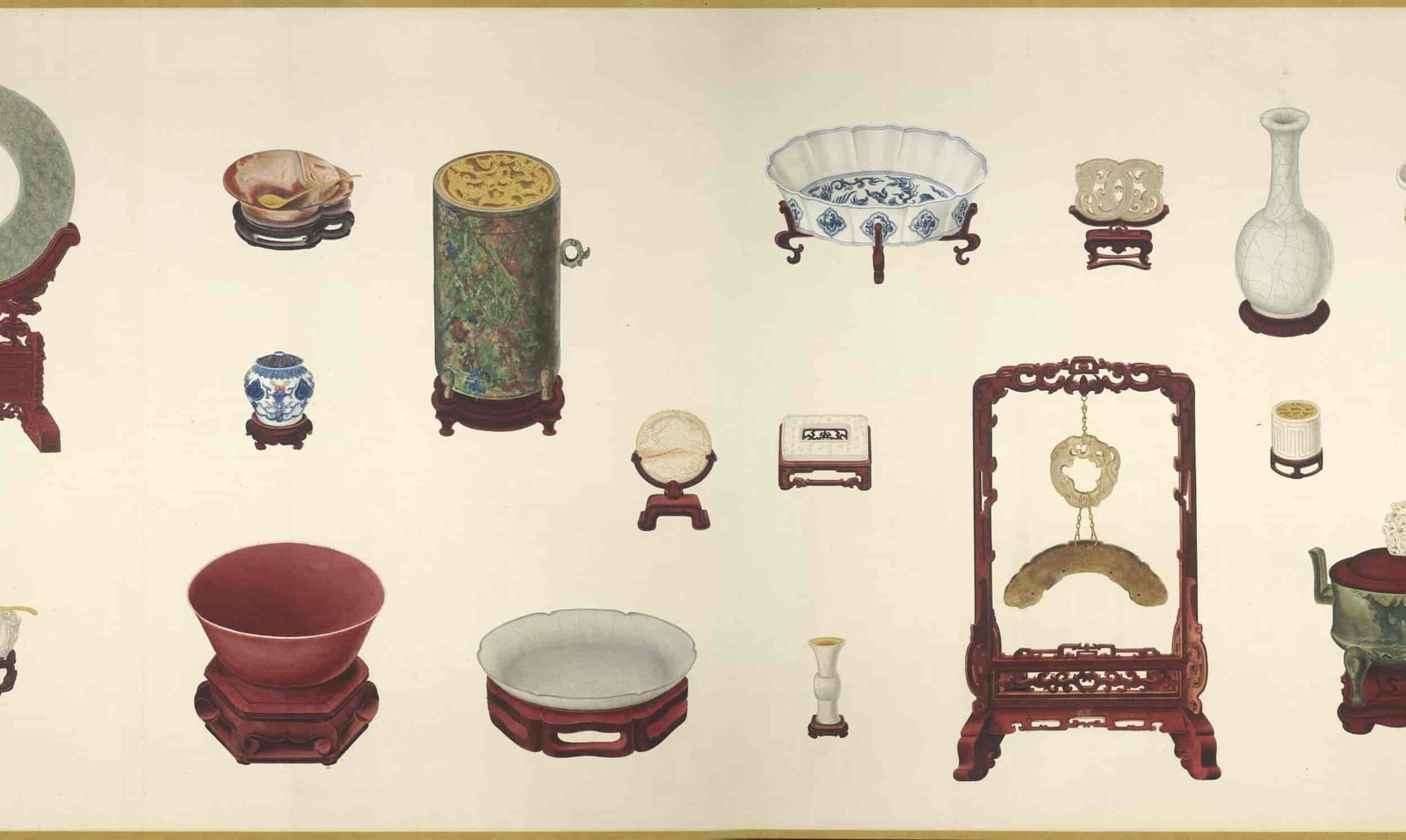
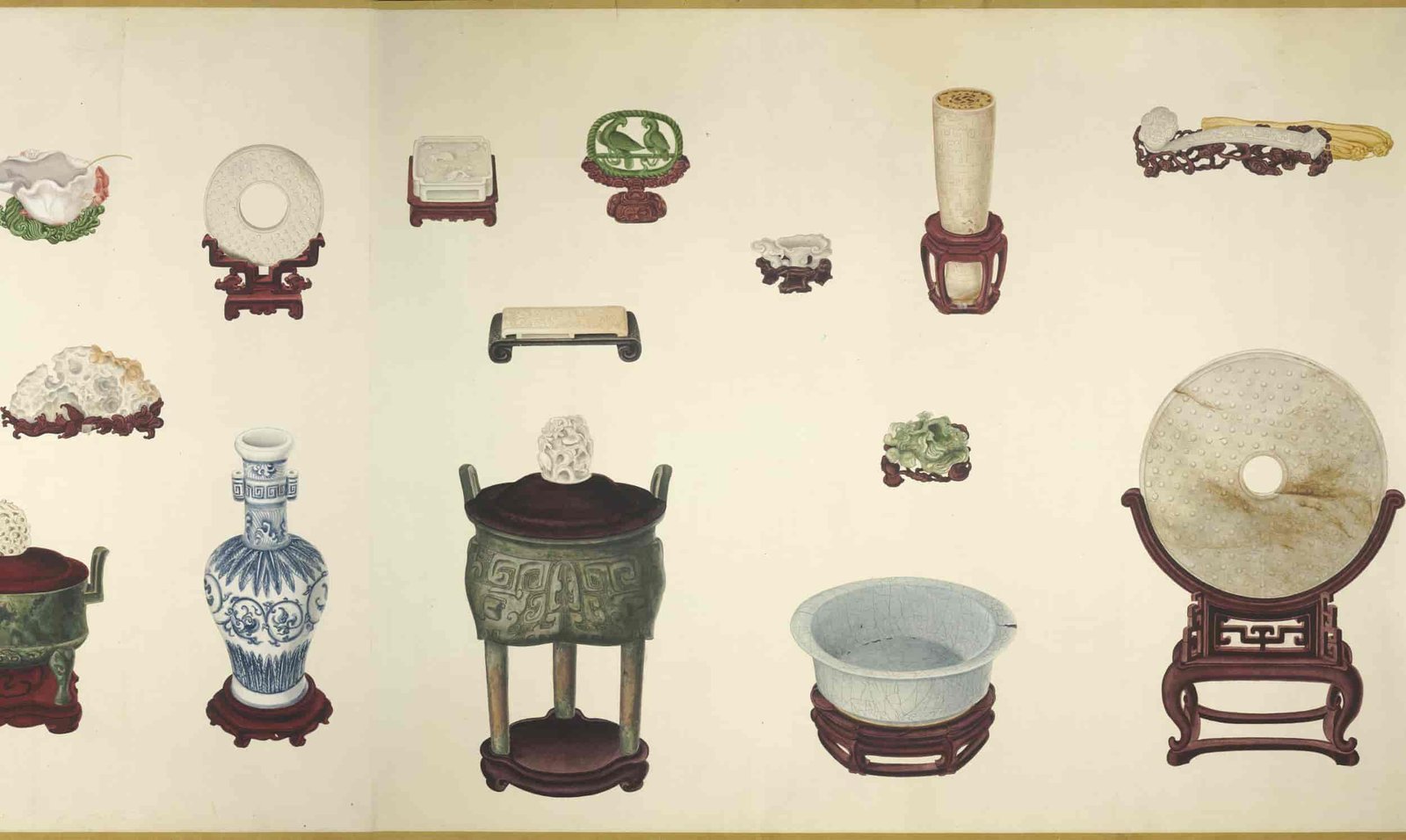
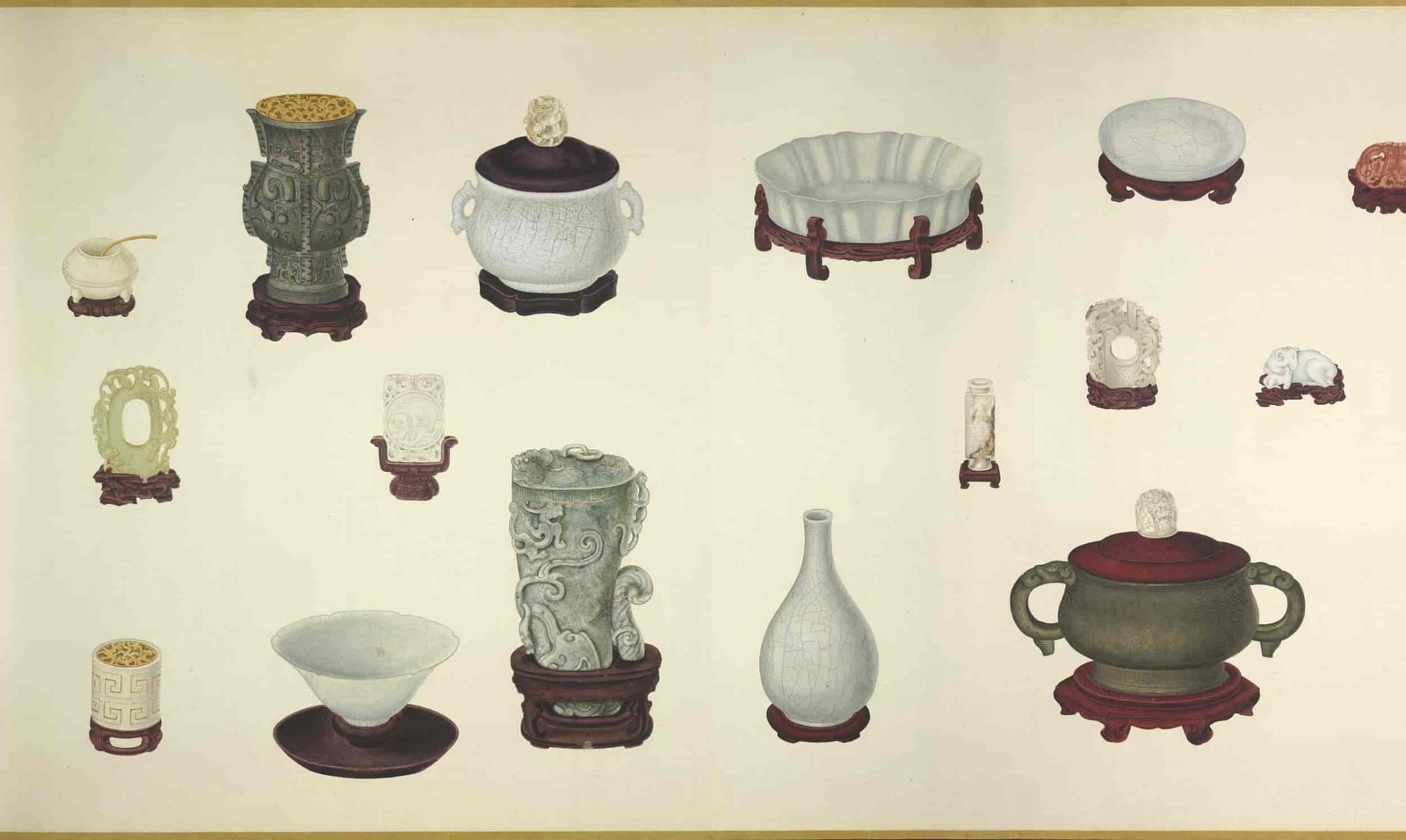
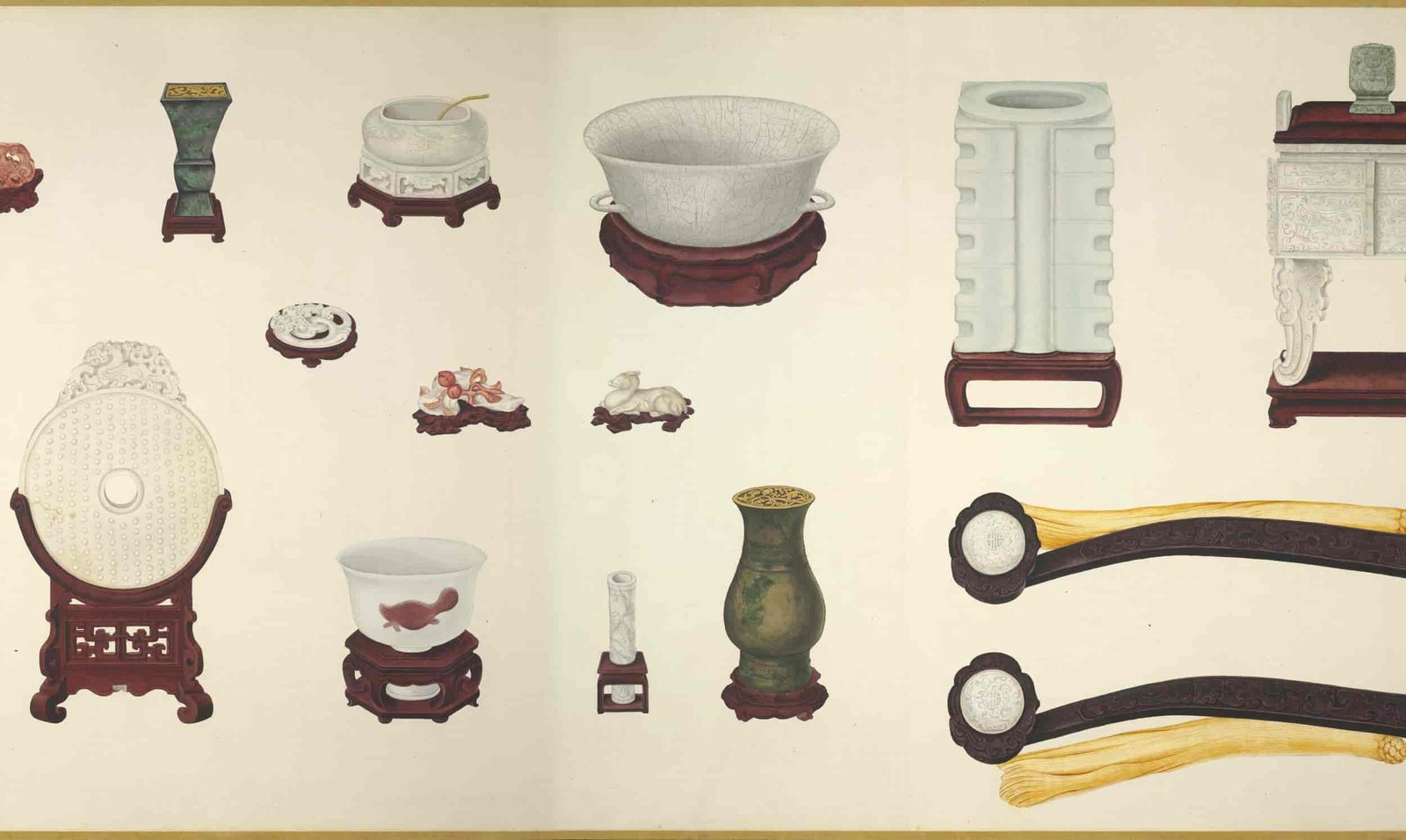
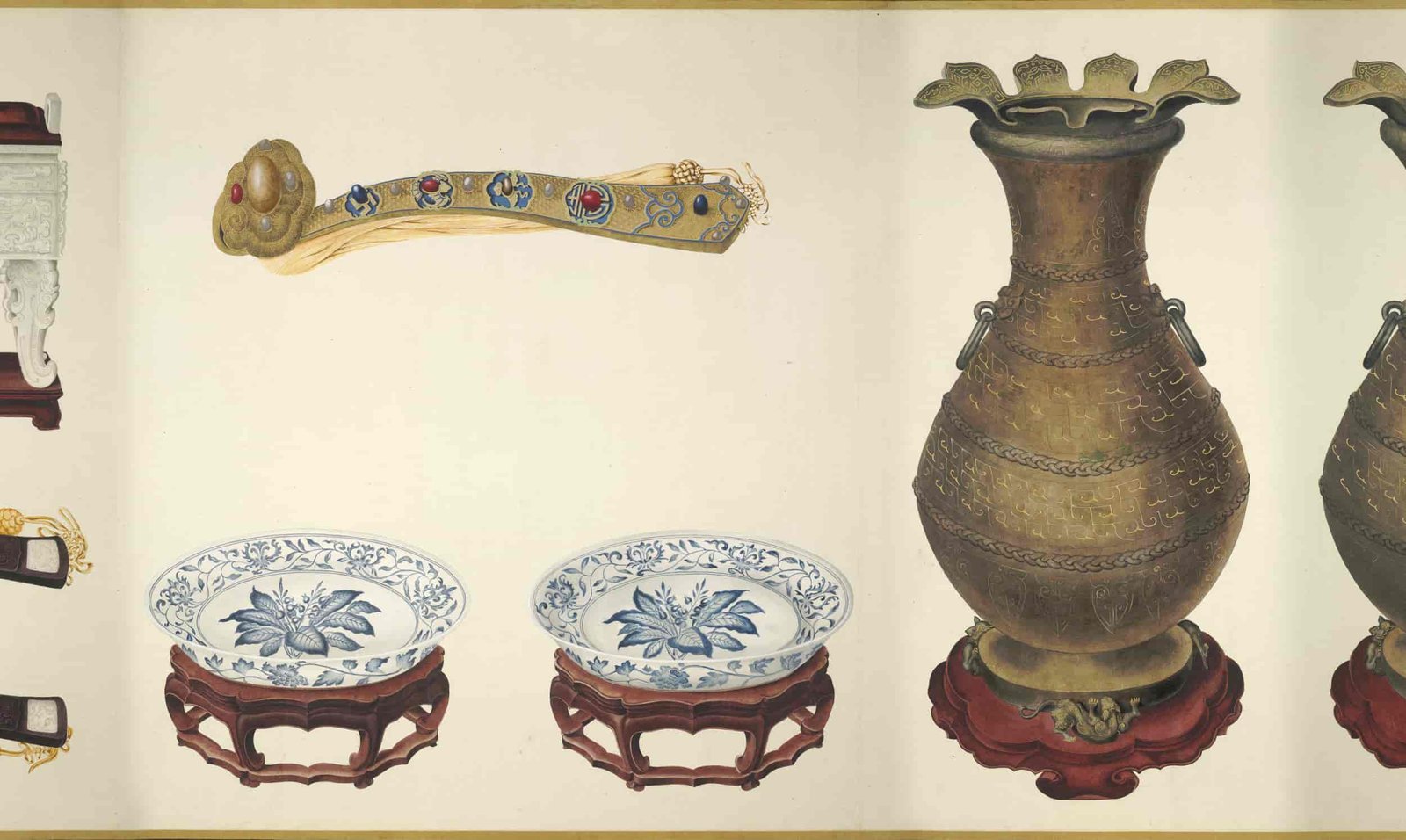
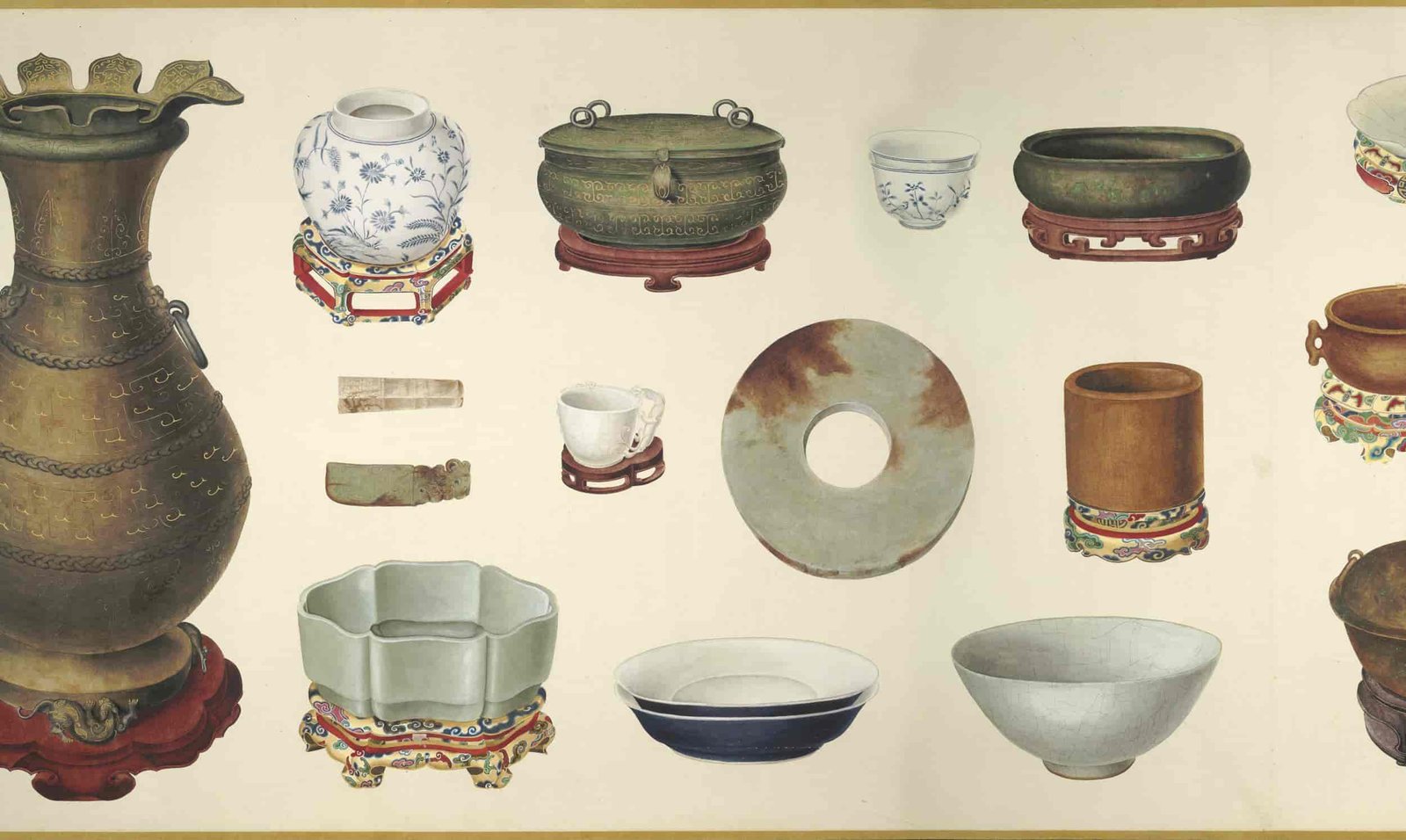
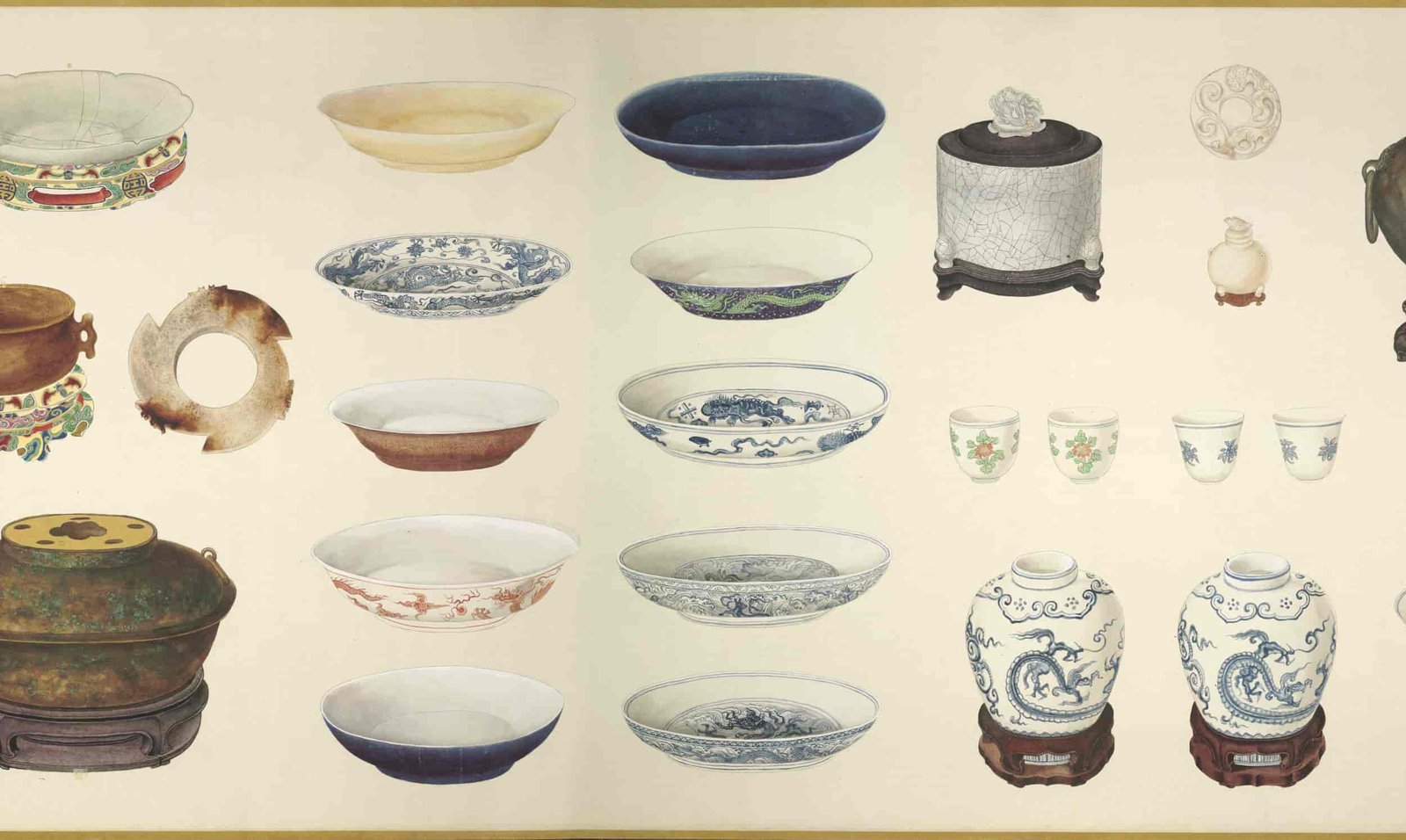
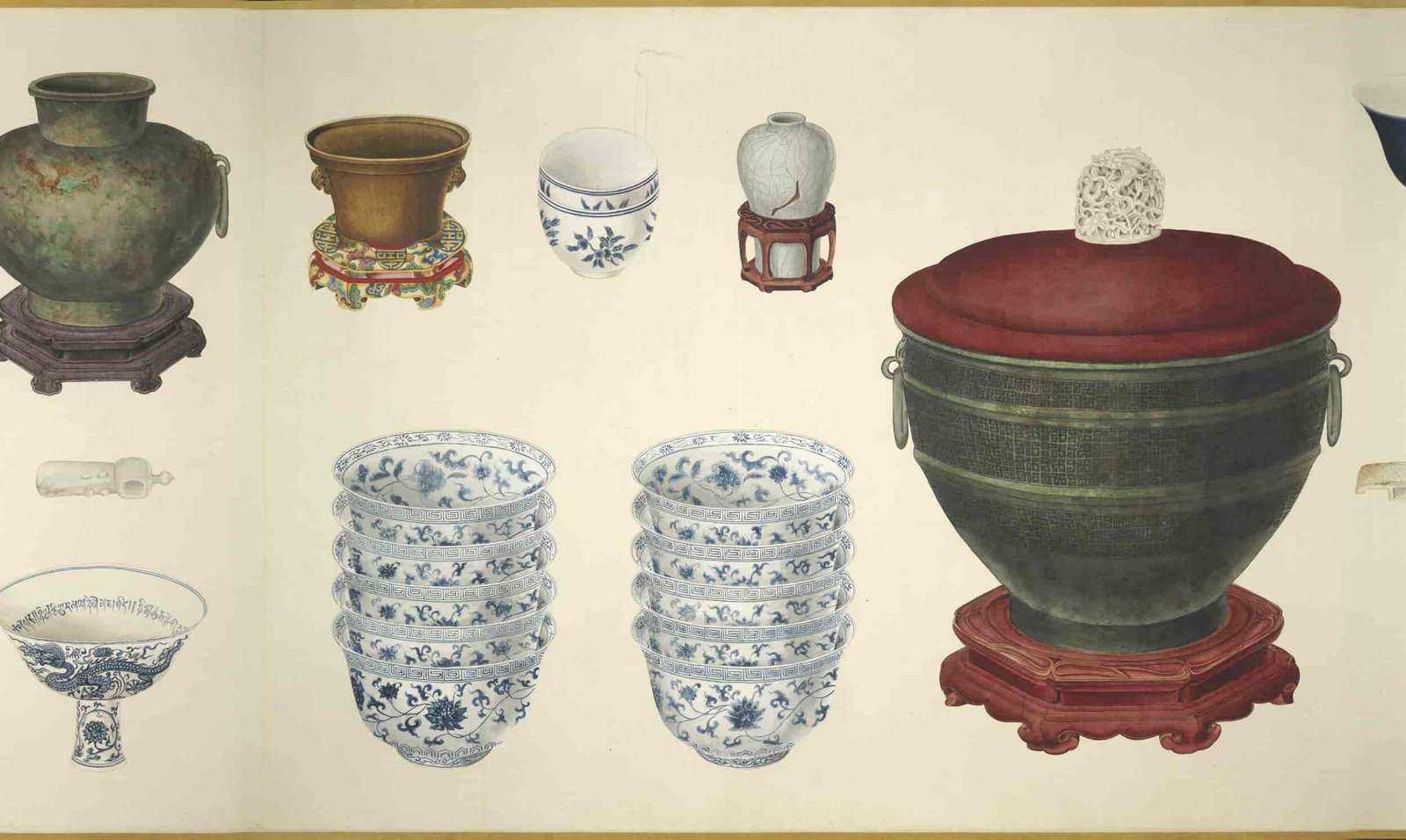
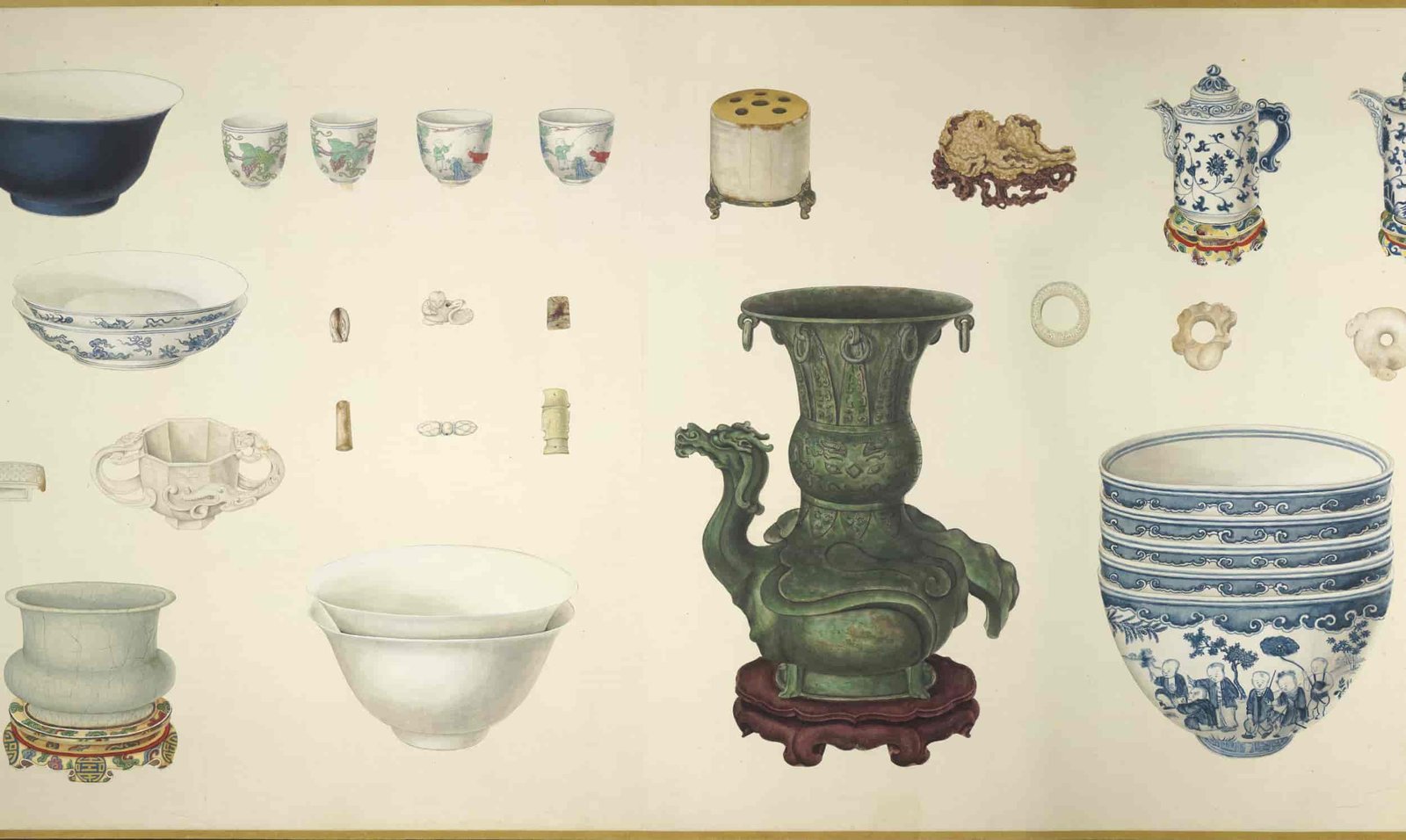
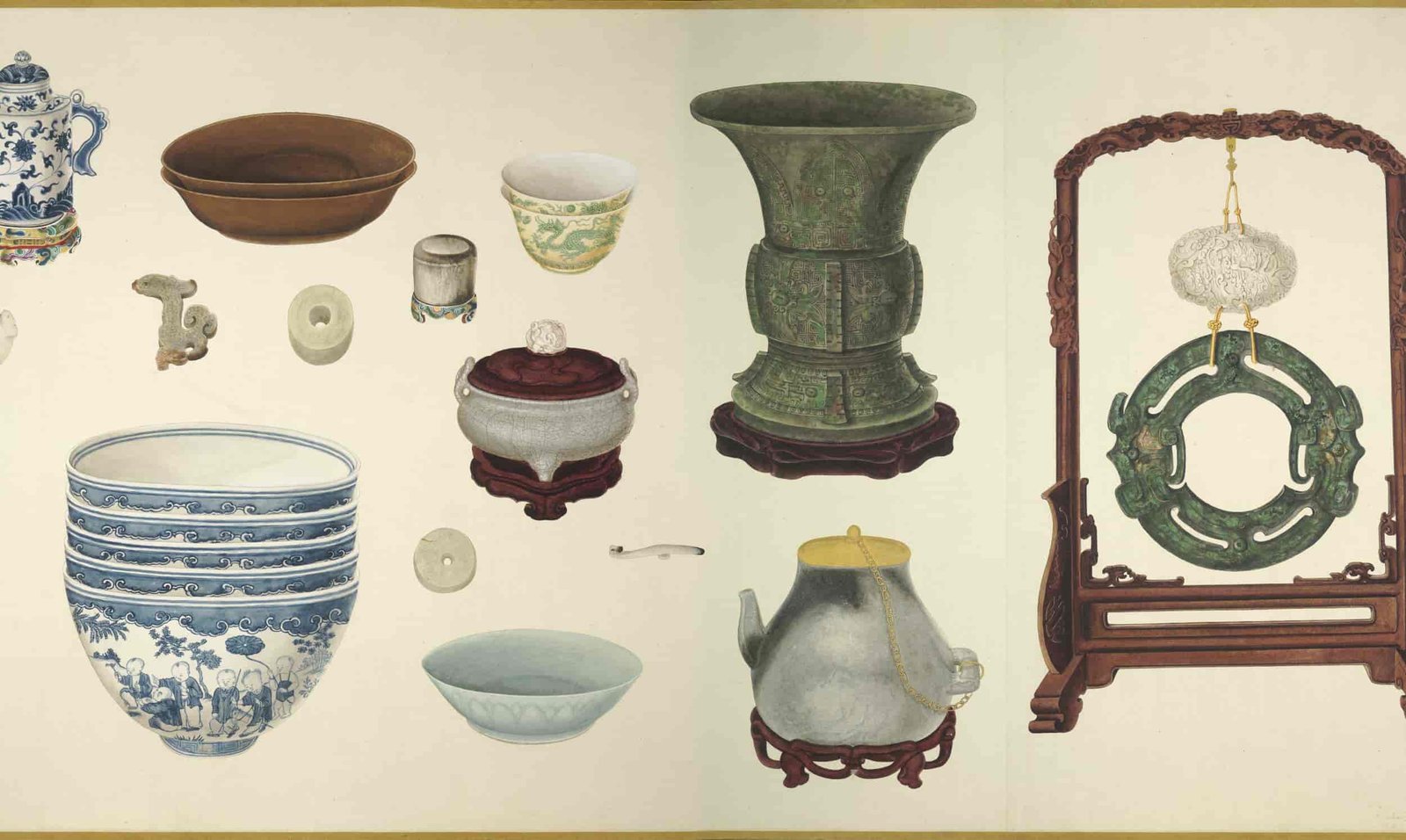
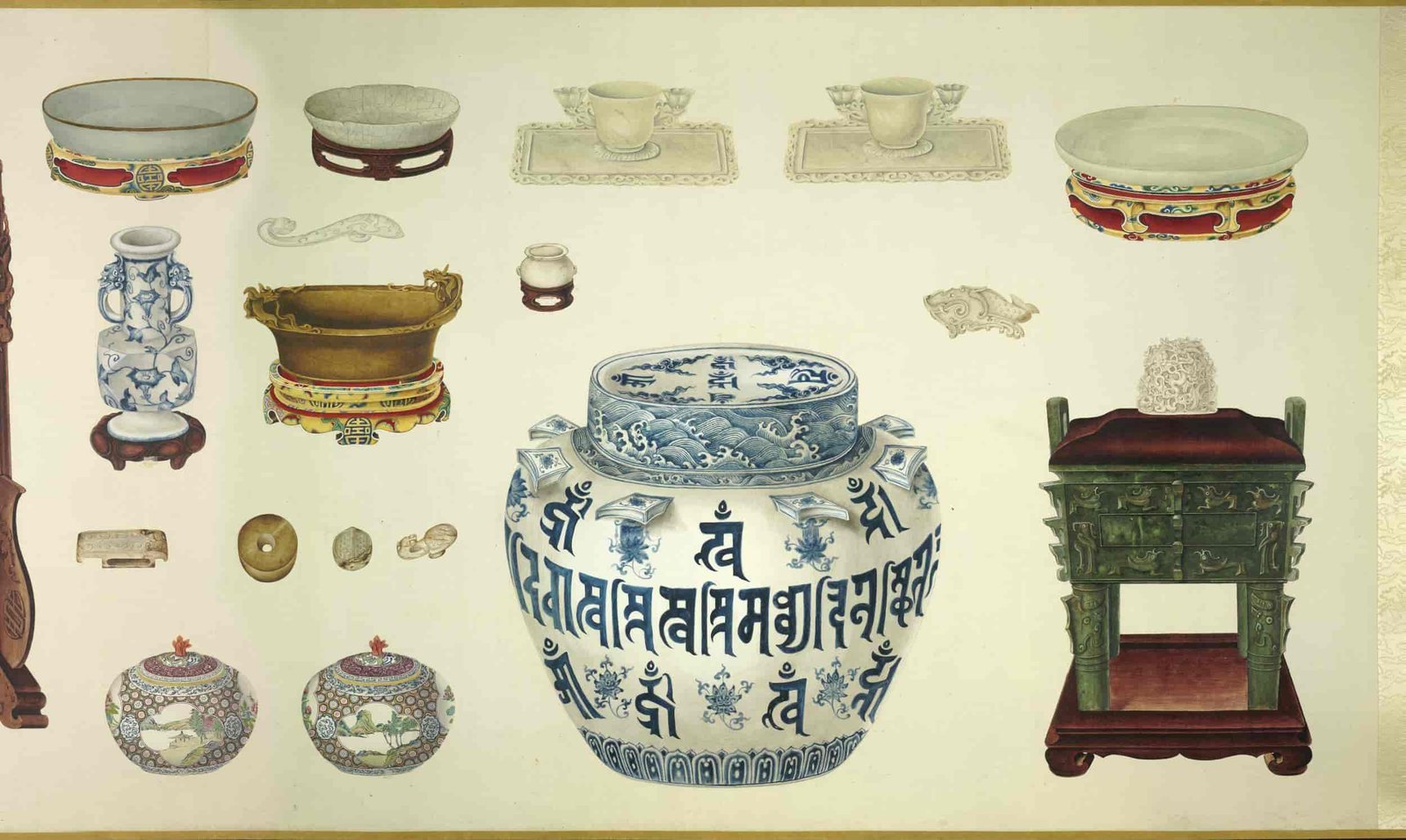
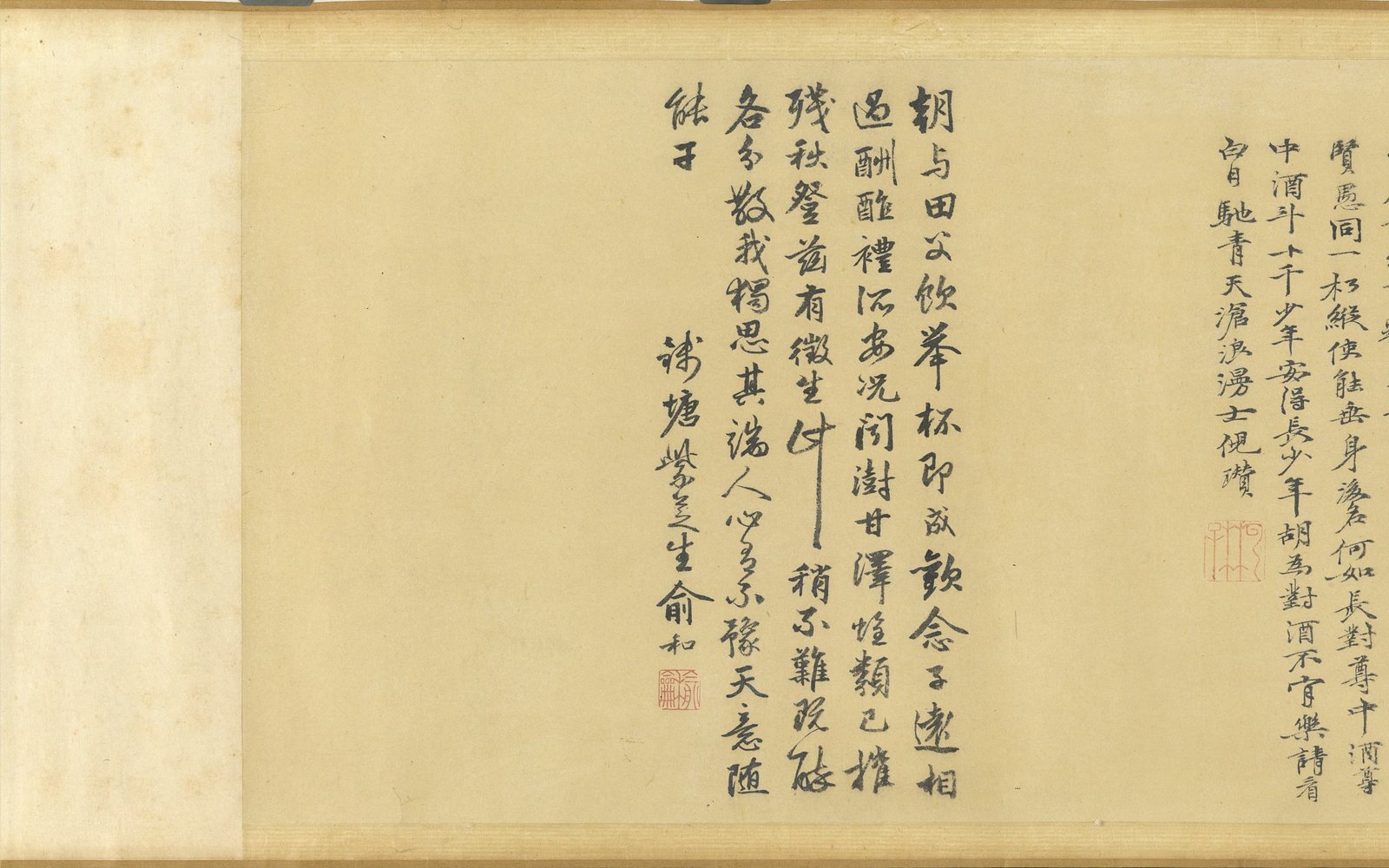
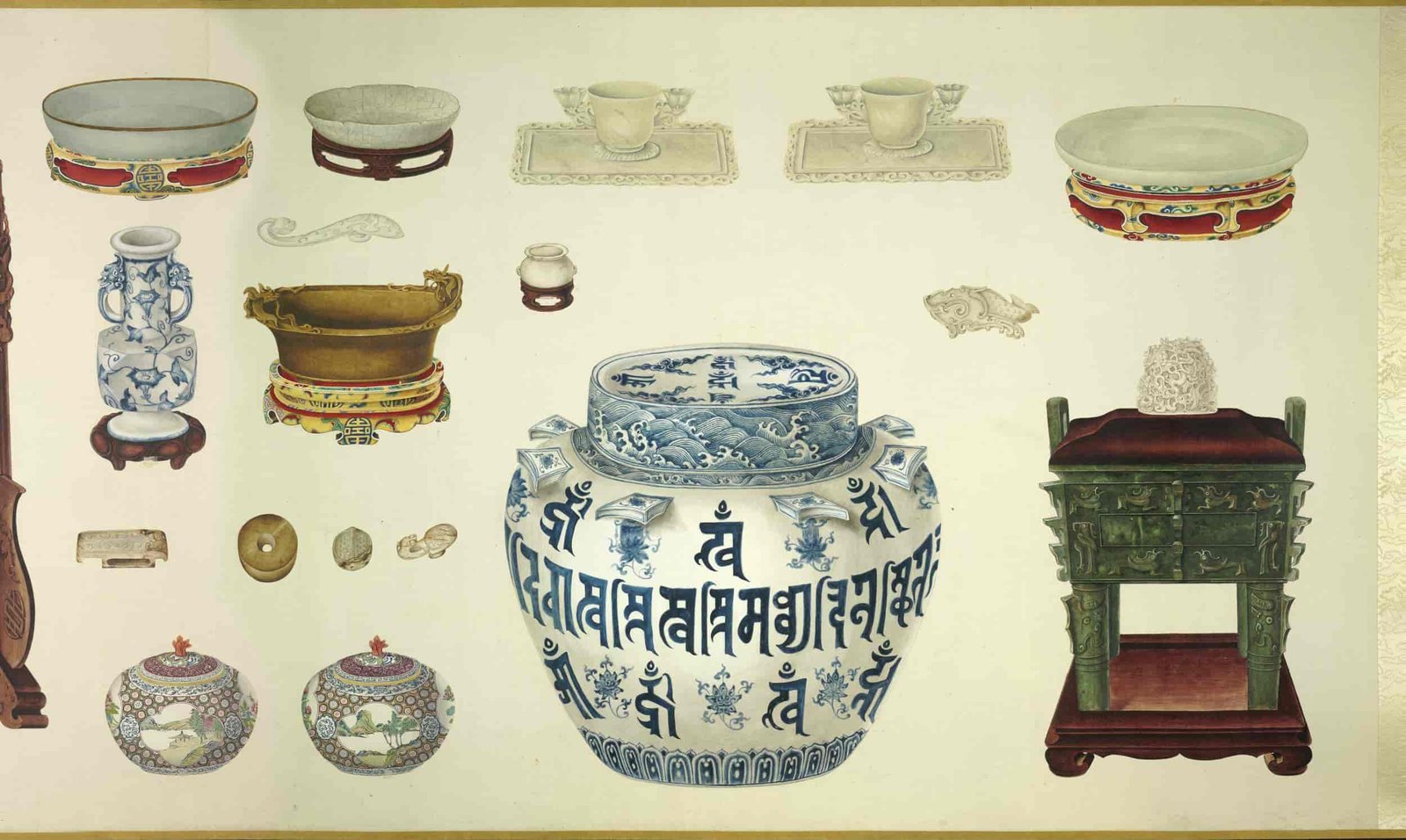
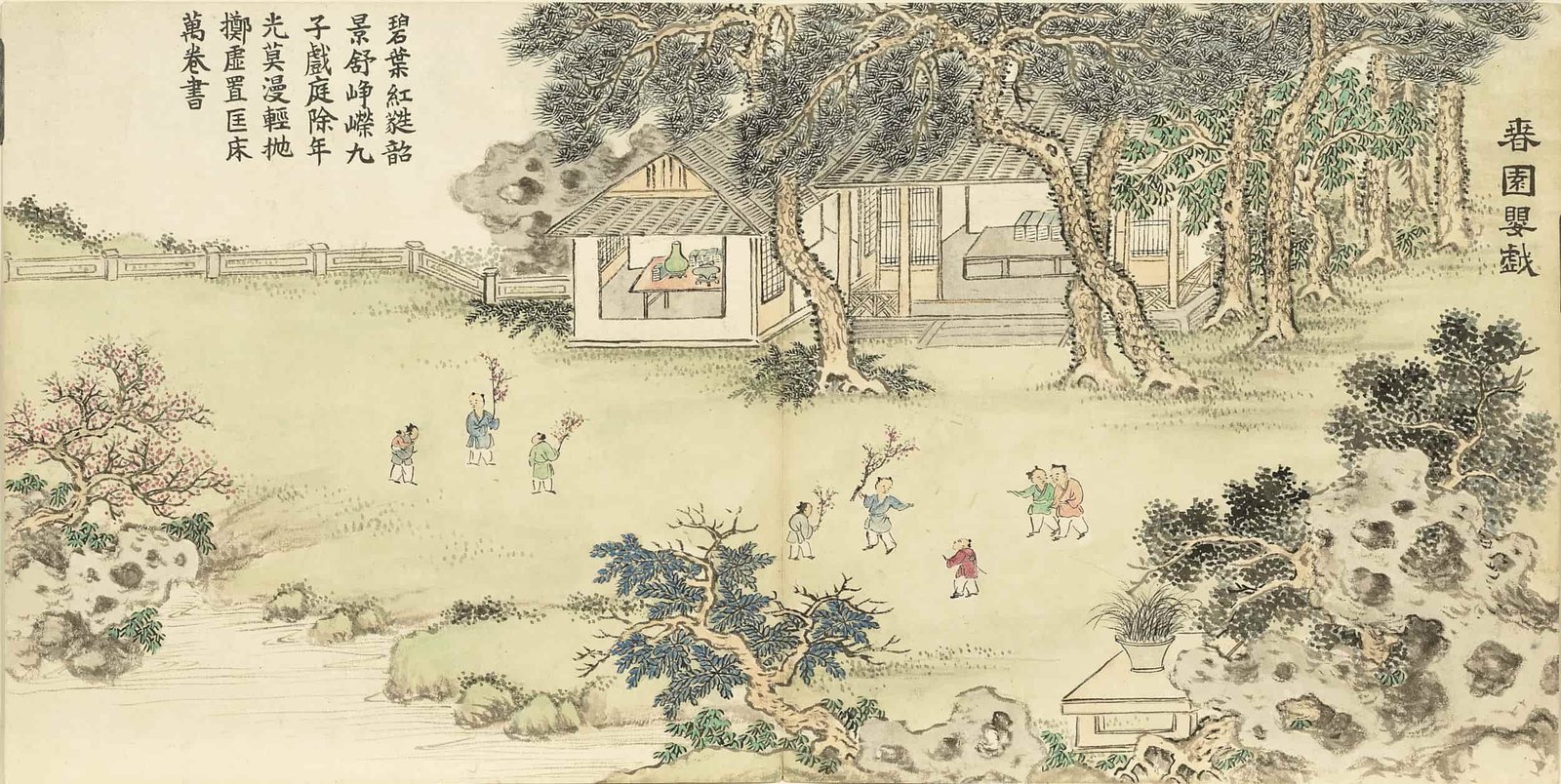
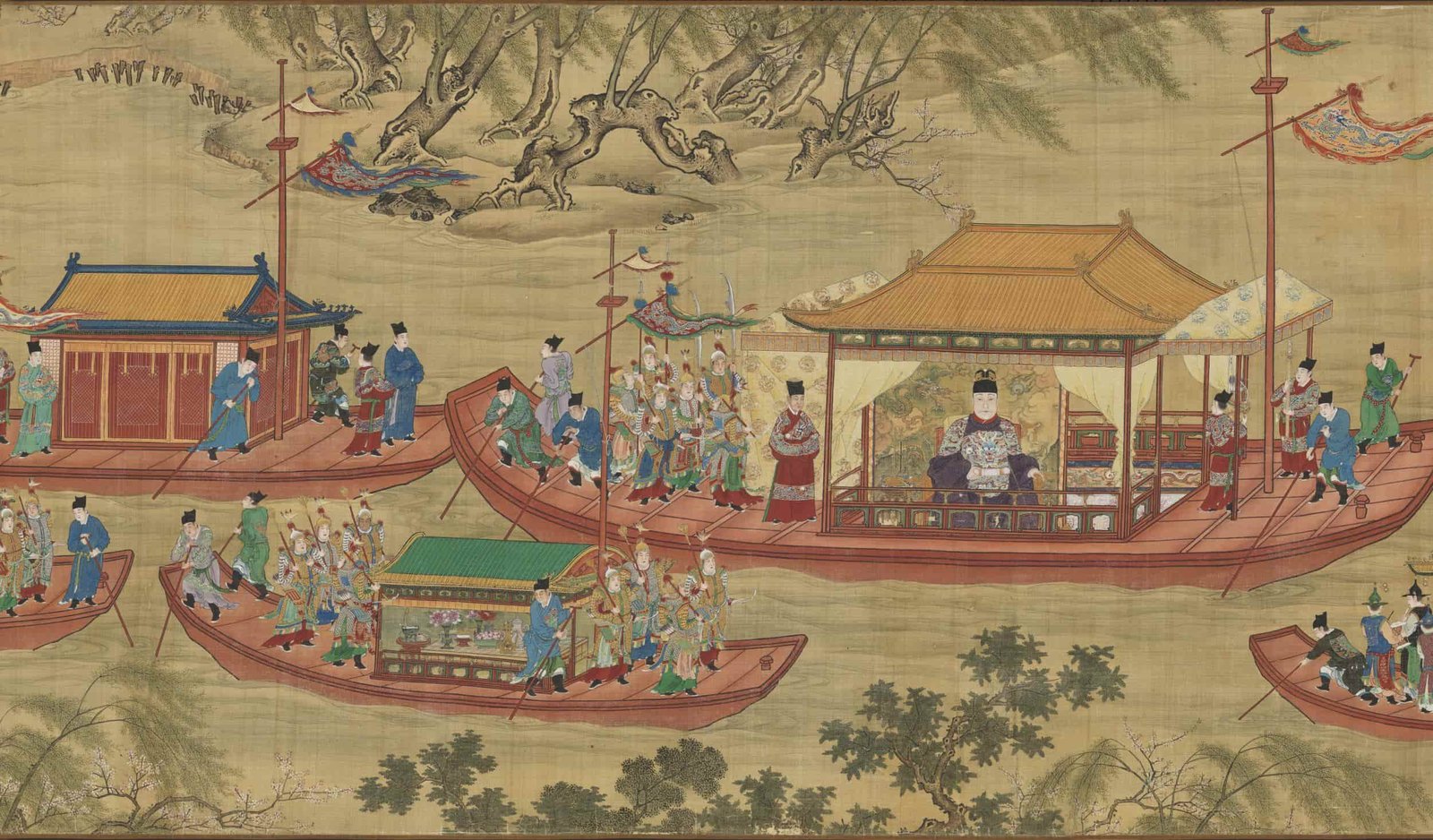
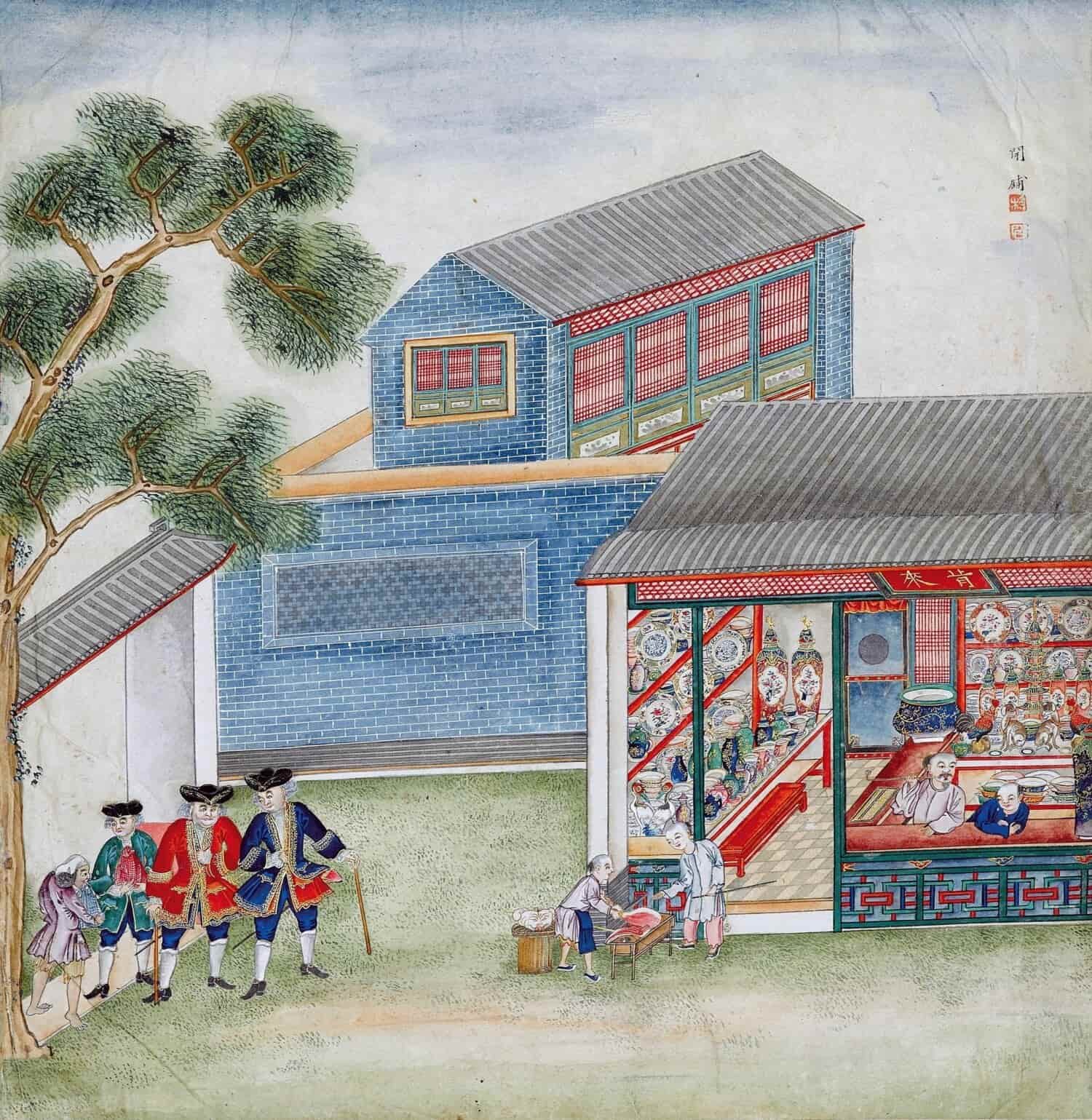
评价
目前还没有评价